TL;DR
This guide outlines the eleven most common SEO errors SaaS businesses make—like relying on tool-driven keywords instead of audience research, lacking clear ICPs, over- or under-optimizing content, shying away from product and competitor mentions, and fixating on vanity metrics—and offers practical fixes for each. It emphasizes anchoring your efforts in a strategic roadmap that prioritizes user intent, high-leverage tasks, conversion rate optimization, and revenue-driven KPIs to turn organic traffic into sustainable growth.
I’ve been doing SEO for SaaS for about 4+ years now.
I’ve seen just about every mistake you can make.
From minor ones to complete and utter disasters.
This article will highlight what those diasters were.
And how you can avoid them.
I also made this video if you want a quicker TL;DR
https://youtu.be/uk6uEmPVWL8
SEO Mistakes SaaS Brands Have to Avoid
Alright, let's jump in.
These mistakes are all very specific to SaaS brands.
SEO Mistake #1: Ignoring Keywords Attached To Your Product
The pages that will have high conversion intent are your product pages.
Not only for users exploring your website, but also for users searching for your solution.
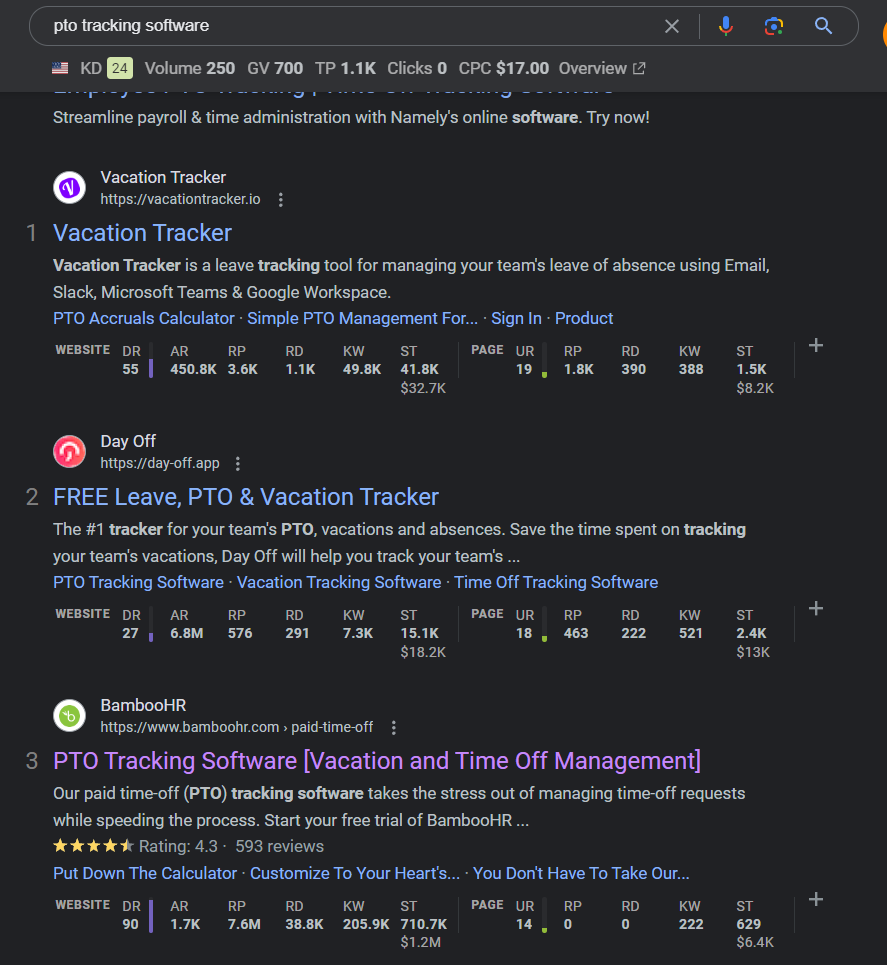
Yes, it’s unlikely a user will immediately signup for your product after searching for a “mobile app analytics software,” but this will still act as a touchpoint for your user during their initial discovery phase.
Plus it will be your best shot to actually show your user what your product does.
While these pages will have less organic traffic potential, they are a great way to position your product in front of potential customers.
SEO Mistake #2: Using An SEO Tool for Keyword Research Instead of Your Audience
A cardinal sin of SEO is to only focus on keyword volume and not your actual target audience.
Yes, an SEO tool can be helpful for keyword research like long-tail keywords and content ideas, but it shouldn’t be the main driver of your SEO strategy.
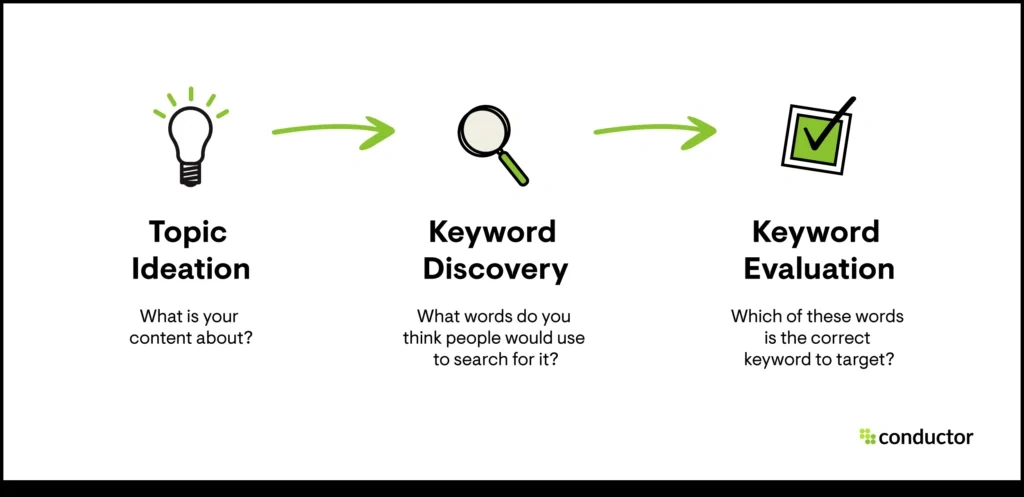
Source: Conductor
Especially for B2B SaaS companies with long cycles.
Listen to your audience, understand what they’re searching for, and create genuinely helpful content that answers what they’re searching for.
That’s about 75% of SaaS SEO right there.
Ignore high-volume keywords, and focus on what your audience is searching for.
SEO Mistake #3: Not Having a Clear ICP in Mind
Continuing off the previous SEO mistake, another mistake is to go in blind with your content and SEO.
Not having the faintest idea of who you’re targeting and why you’re targeting them.
Even better, if your decision makers are SEO specialists, why would you care about targeting email marketers with your content?
Before you get started with anything, have your ideal customer profile and target personas mapped out.
SEO Mistake #4: Over-Optimizing Your Content
Yes, this is a common mistake and a mistake I see made on almost every website I audit.
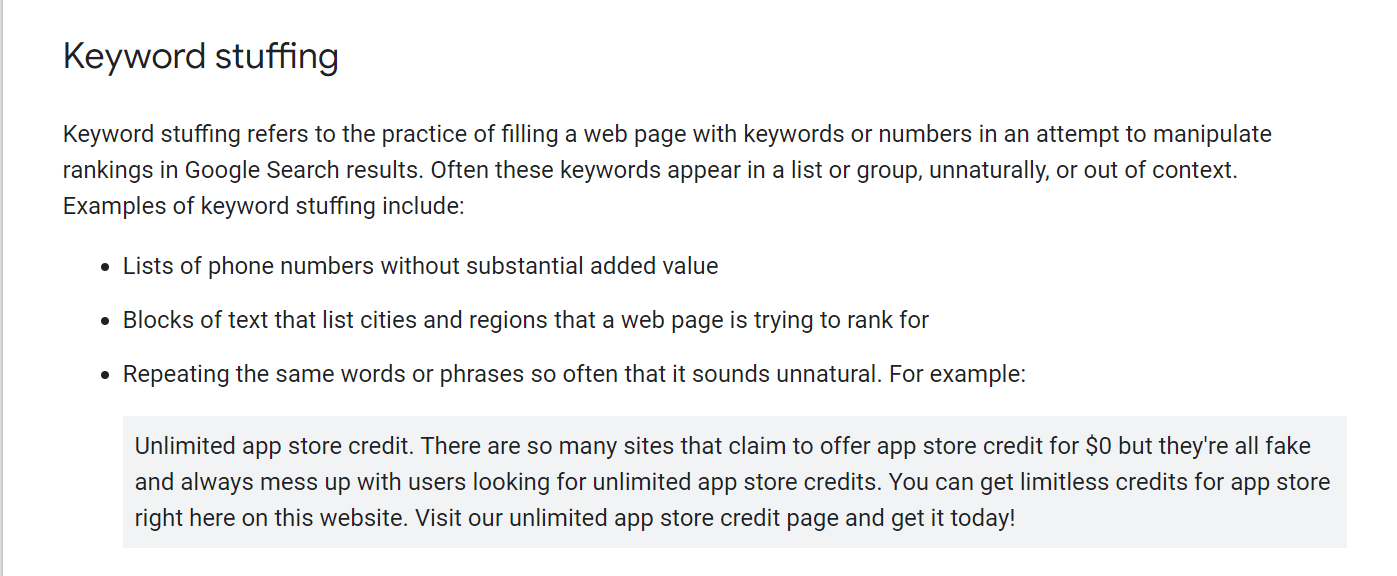
Source: Google Search Console
Websites focus too much on SEO, that they end up taking away from the actual helpfulness of that content.
It’s a mistake for two reasons.
- Google can devalue your content for keyword stuffing
- Your audience isn’t going to read or take any value away from your content
It’s just a lose-lose in all cases.
And with #2, even if your page started ranking, it wouldn’t drive any meaningful results.
SEO Mistake #5:
Not Optimizing Your Content Enough
Okay, I’m being confusing here I get it.
But, it is a mistake I commonly see SaaS companies make.
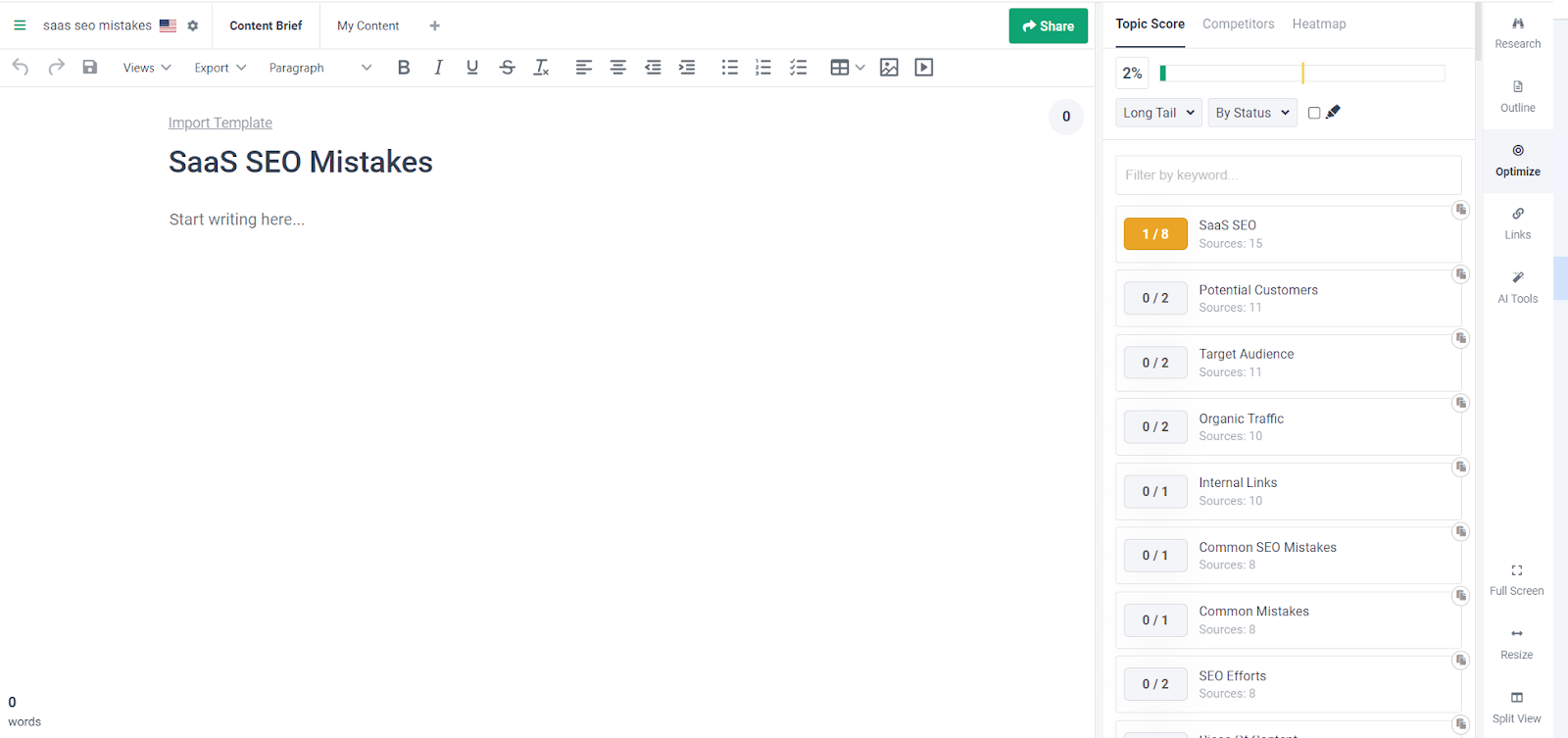
Instead of having their content aligned with a goal, it’s just publishing content for the sake of it.
While you don’t want to over-optimize your content (as I mentioned above), you at least want to have it aligned with a search term or set of search terms.
This means:
- Having a topic/search term aligned with your content
- Making your content relevant around the topic/keyword
- Performing traditional on-page SEO (internal links, entities, etc.)
- Link building if necessary
This is the part that confuses me.
There’s nothing that says SEO content has to be separated from other types of content.
As long as your content is relevant – throw everything previously learned about keyword optimization out the window – you’ll see success.75% of SEO is matching the relevancy of your content and the keyword.
When I’m optimizing content, I’m optimizing for the topic, not the keyword.
SEO Mistake #6:
Shying Away From Mentioning Your Product
I see this one too often with the websites I audit.
The content misses the opportunity to take a product-led approach and even their product pages are filled with vague language.
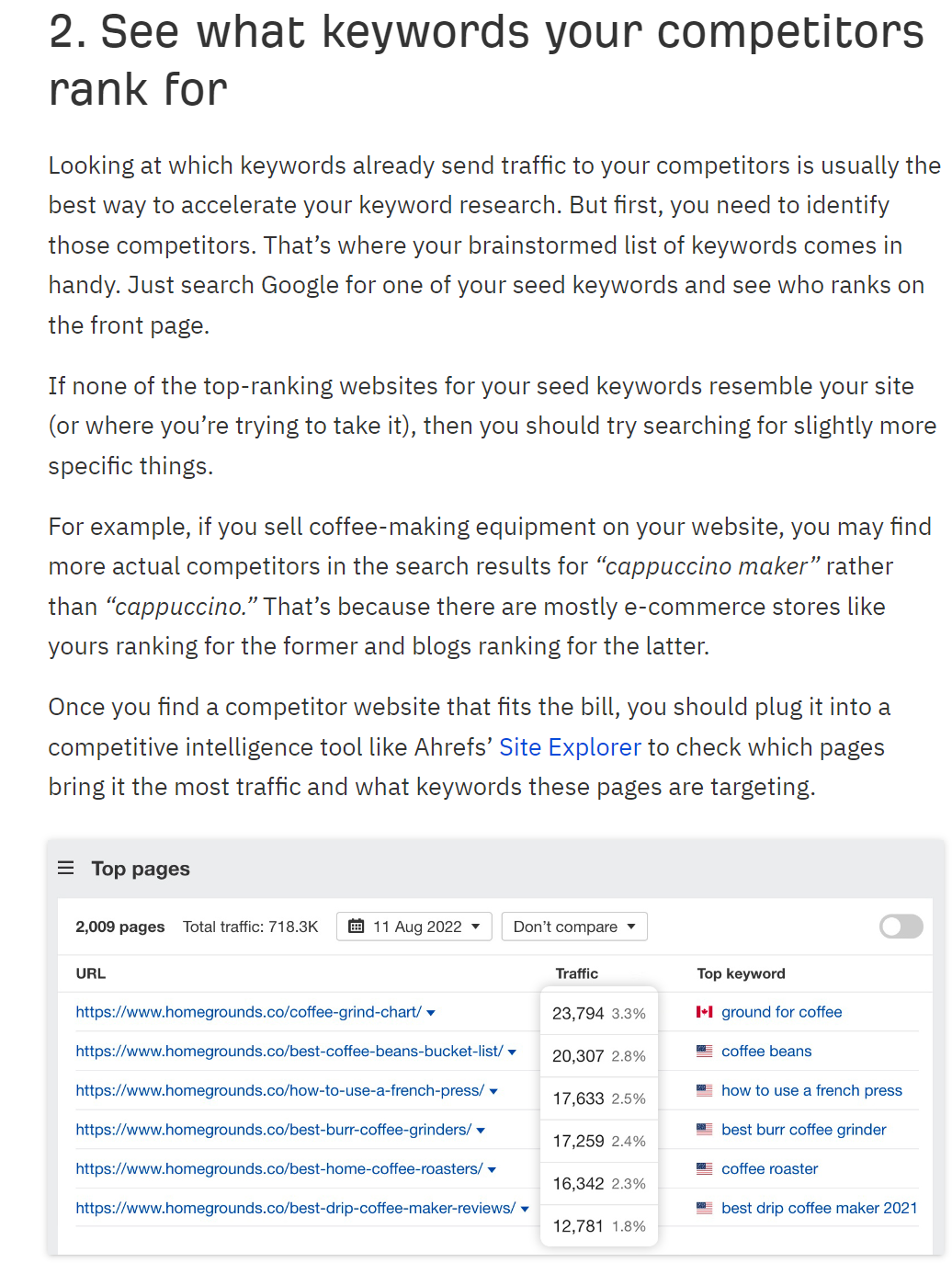
When it comes to SEO and content marketing, the main goal should be to give your audience as much ammunition as they need to consider your product.
Still, focus on content quality and serving the user’s search intent while showing what your product is capable of.
SEO Mistake #7:
Being Too Salesy and Ignoring the User’s Search Intent
Okay, this is now the second time I’ve contradicted myself.
I have a good excuse this time.
It’s all about balance.
No one side is better than the other; it all requires a balance to stay effective.
So what’s the common SEO mistake here?
I commonly see SaaS companies use their content as an opportunity to preach how amazing they are.

No helpful content or even product-led content.Just content mentioning how they’re the best product out there.
Not only does this seem spammy for your user, but you are actually ignoring relevancy and the user’s search intent.
So your content likely won’t rank as well.
My way of getting around this – and finding balance – is to show, not tell.
Show them what’s achievable with your solution, don’t just tell them about it.
Just focus on creating high-quality content based around your potential customers, and the rest will fall into place.
SEO Mistake #8: Not Willing to Mention Your Competitors
This is a missed opportunity on plenty of fronts, but from an organic search standpoint, it’s a huge missed opportunity.
Especially when we move closer to the bottom of the funnel.
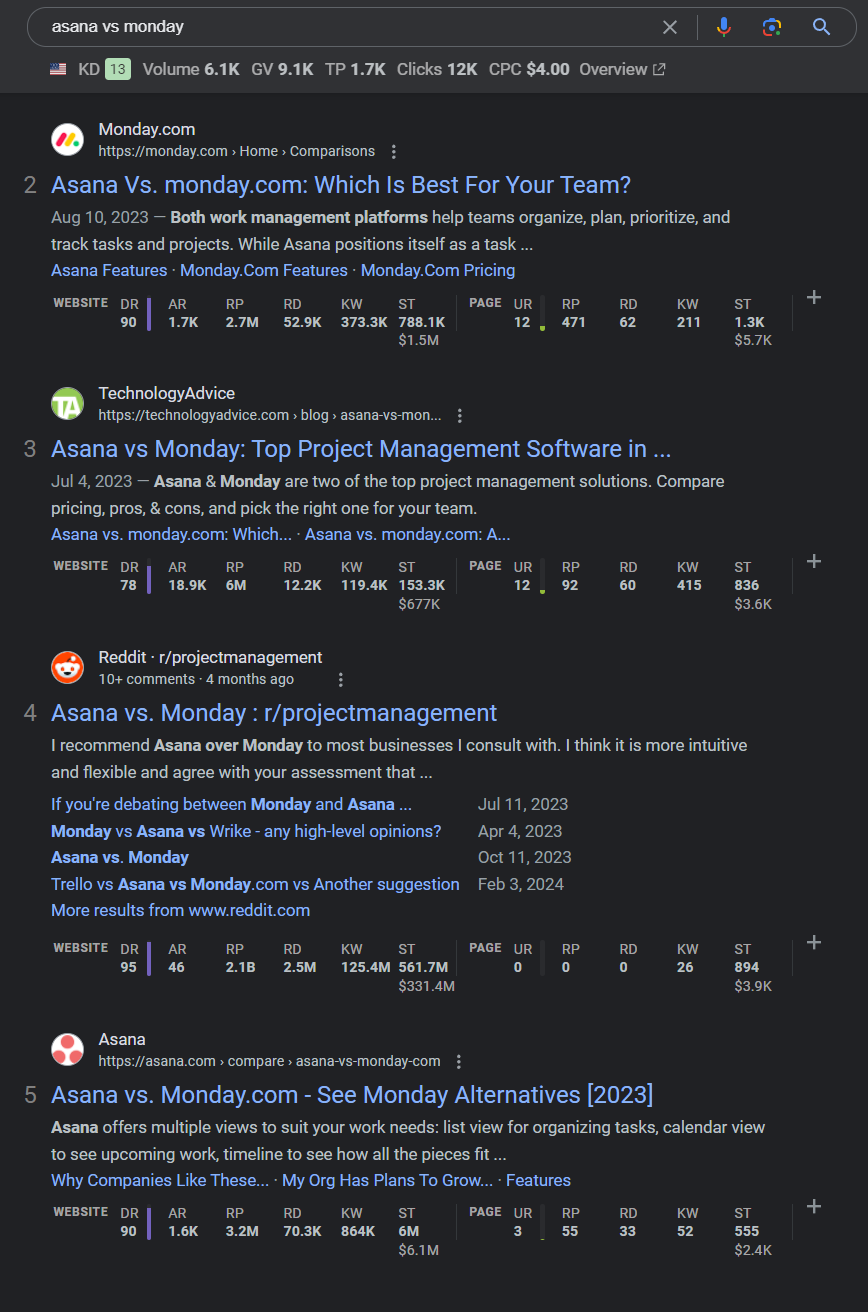
Your audience is now at the point where they have their solutions picked out and now they’re considering their potential options.
Your role in this stage is to show your audience why you’re ultimately the best solution for their problem.
And with SEO, this comes in the form of alternative articles.
Like:
- Asana Vs. Trello
- Ahrefs Vs. SEMrush
These users have gone through their full buyer’s journey, and now they’re on their final search to decide what the best decision will be.
So what’s the SEO mistake here? Not being visible for this type of search.
SEO Mistake #9: Only Focusing on Vanity Metrics
If I had to pick only one SEO mistake, it would probably be this one right here.
Vanity metrics are so commonly prioritized in SEO, and I think it’s why SEO gets such a bad rap.
It’s easy for anyone to point out traffic increases and search engine rankings, but what good are they if they don’t turn into attributable revenue?
While SEO does take time, rankings and traffic shouldn’t be the only KPIs you use to determine if your SEO is actually working.
Focus on things like:
- Revenue
- Demo requests
- Product Sign Ups
- Free Trial Signups
- User Engagement with your content
- CAC
- CLV
- Conversion rates
SEO Mistake #10: Neglecting Conversion Rate Optimization (CRO)
This mistake is quite insidious.
You can drive traffic in abundance, but if it doesn't convert, your efforts are meaningless.
Many SaaS brands fixate solely on surface-level metrics (like traffic, rankings, and impressions) without considering how that traffic navigates through the sales funnel.
Utilize clear calls-to-action, engaging product demos, or enticing free trials to convert that organic traffic into valuable leads or sign-ups.
It demands thoughtful testing and user feedback, but it's entirely worthwhile.
If you disregard CRO, your SEO may seem impressive on paper, yet fail to generate any revenue.
SEO Mistake #11: Failing to Monitor and Analyze Performance
Indeed, there’s more to analytics than simply tracking traffic and rankings.
It's essential to monitor user behavior, demo requests, sign-ups, and actual revenue.
Without doing so, how can you substantiate ROI?
Tools like Google Analytics, Looker Studio, or other analytics platforms can illuminate user interactions with your site post-click.
If you’re not assessing what occurs after someone visits your page, you’re missing insights into whether that content is truly effective or just aesthetic.
Fixing These SEO Mistakes Before They Happen
The mistakes listed above are problems I see happening across most websites I audit.
I'll say that a majority of these issues all come from a lack of strategy.
Just jumping into SEO without considering why you're doing the things you're doing.
If you want to see the best results from SEO, you have to start at the strategy/roadmap level.
Focus on the "why" and not the "what."
Why are we doing this tactic, and what result are we working towards by doing this?
I'll also say to consider the 20/80 rule too.
Whenever you're thinking about taking on a task for SEO, always think about whether that task is low leverage but can lead to high rewards.
With that and a strategy in mind, SEO will be much easier for you to execute.


.png)

